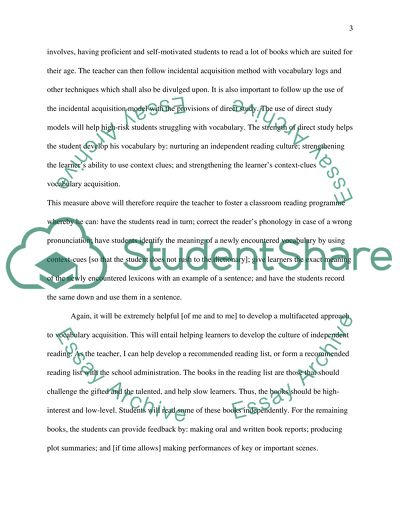Cite this document
(“Teaching vocabulary Essay Example | Topics and Well Written Essays - 2000 words”, n.d.)
Retrieved from https://studentshare.org/english/1490304-teaching-vocabulary
Retrieved from https://studentshare.org/english/1490304-teaching-vocabulary
(Teaching Vocabulary Essay Example | Topics and Well Written Essays - 2000 Words)
https://studentshare.org/english/1490304-teaching-vocabulary.
https://studentshare.org/english/1490304-teaching-vocabulary.
“Teaching Vocabulary Essay Example | Topics and Well Written Essays - 2000 Words”, n.d. https://studentshare.org/english/1490304-teaching-vocabulary.


